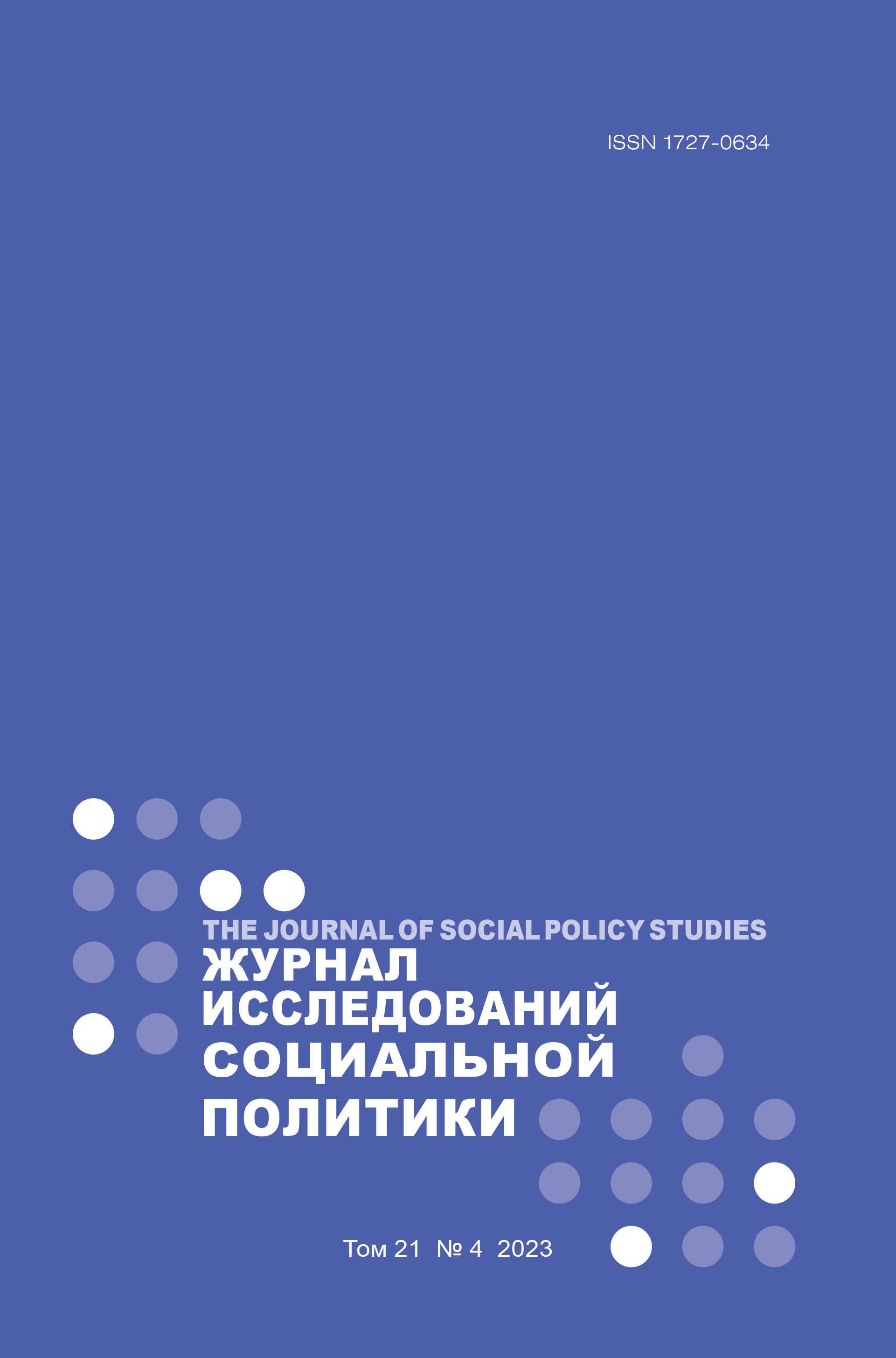Predictors of Investment in Health Capital of the Older Generation
Abstract
The available research reveals the interconnection between social and economic institutions and the processes of accumulation and preservation of health capital. Economic, cultural, social, and environmental factors have synergistic effects on decision-making to invest in health. These strategies become outcomes in old age. This article provides an analysis of the predictors of investing in health that influence health capital accumulation in old age, based on empirical data. This research is based upon a sociological survey 'Health capital of the older generatio' carried out in the Tomsk region in 2022 (N=300, 55+). The results show that qualitative indicators, namely labor activity, satisfaction with health and economic well-being, and trust in health care institutions, significantly influence the choice of health care investment strategies. However, retirement itself does not appear to be a critical factor of health preservation when older adults continue to work. External opportunities change behavioral patterns to some extent, but it is difficult to estimate their impact on the health capital formation. The subjective decision to invest or not to -invest in one’s health divides respondents into two comparable groups: those who persistently invest (41 %) and those who choose not to invest (48 %). We found out that the most health negligent people belong to the age group of 70–74 (36 % of them do not consider it reasonable to invest in health investment). Gender, place of residence, and family composition do not significantly promote the choice of health investment strategy. Employed and physically active older adults are more satisfied with their health and financial status. They are also more likely to invest in health compared to the unemployed and inactive. The health capital of older adults depends on the ability to invest in the accumulation and maintenance of a health resource over the life course, as well as on the environment that supports investment in health.















